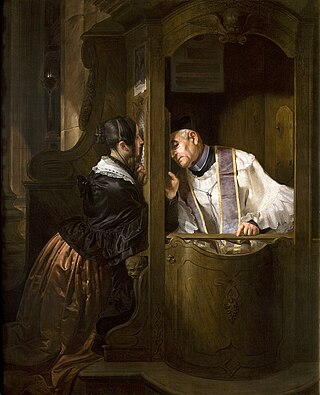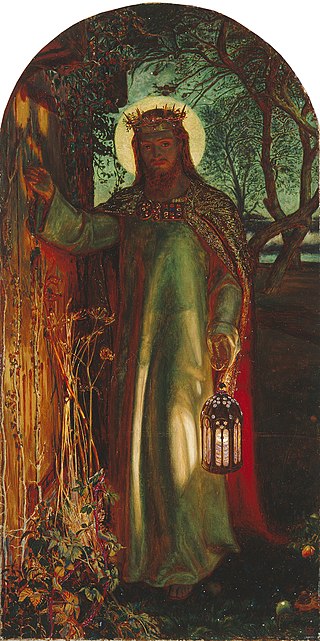Article I - God
We believe in the one true, holy and living God, Eternal Spirit, who is Creator, Sovereign and Preserver of all things visible and invisible. He is infinite in power, wisdom, justice, goodness and love, and rules with gracious regard for the well-being and salvation of men, to the glory of his name. We believe the one God reveals himself as the Trinity: Father, Son and Holy Spirit, distinct but inseparable, eternally one in essence and power.
Article II - Jesus Christ
We believe in Jesus Christ, truly God and truly man, in whom the divine and human natures are perfectly and inseparably united. He is the eternal Word made flesh, the only begotten Son of the Father, born of the Virgin Mary by the power of the Holy Spirit. As ministering Servant he lived, suffered and died on the cross. He was buried, rose from the dead and ascended into heaven to be with the Father, from whence he shall return. He is eternal Savior and Mediator, who intercedes for us, and by him all men will be judged.
Article III - The Holy Spirit
We believe in the Holy Spirit who proceeds from and is one in being with the Father and the Son. He convinces the world of sin, of righteousness and of judgment. He leads men through faithful response to the gospel into the fellowship of the Church. He comforts, sustains and empowers the faithful and guides them into all truth.
Article IV - The Holy Bible
We believe the Holy Bible, Old and New Testaments, reveals the Word of God so far as it is necessary for our salvation. It is to be received through the Holy Spirit as the true rule and guide for faith and practice. Whatever is not revealed in or established by the Holy Scriptures is not to be made an article of faith nor is it to be taught as essential to salvation.
Article V - The Church
We believe the Christian Church is the community of all true believers under the Lordship of Christ. We believe it is one, holy, apostolic and catholic. It is the redemptive fellowship in which the Word of God is preached by men divinely called, and the sacraments are duly administered according to Christ's own appointment. Under the discipline of the Holy Spirit the Church exists for the maintenance of worship, the edification of believers and the redemption of the world.
Article VI - The Sacraments
We believe the Sacraments, ordained by Christ, are symbols and pledges of the Christian's profession and of God's love toward us. They are means of grace by which God works invisibly in us, quickening, strengthening and confirming our faith in him. Two Sacraments are ordained by Christ our Lord, namely Baptism and the Lord's Supper.
We believe Baptism signifies entrance into the household of faith, and is a symbol of repentance and inner cleansing from sin, a representation of the new birth in Christ Jesus and a mark of Christian discipleship.
We believe children are under the atonement of Christ and as heirs of the Kingdom of God are acceptable subjects for Christian Baptism. Children of believing parents through Baptism become the special responsibility of the Church. They should be nurtured and led to personal acceptance of Christ, and by profession of faith confirm their Baptism.
We believe the Lord's Supper is a representation of our redemption, a memorial of the sufferings and death of Christ, and a token of love and union which Christians have with Christ and with one another. Those who rightly, worthily and in faith eat the broken bread and drink the blessed cup partake of the body and blood of Christ in a spiritual manner until he comes.
Article VII - Sin and Free Will
We believe man is fallen from righteousness and, apart from the grace of our Lord Jesus Christ, is destitute of holiness and inclined to evil. Except a man be born again, he cannot see the Kingdom of God. In his own strength, without divine grace, man cannot do good works pleasing and acceptable to God. We believe, however, man influenced and empowered by the Holy Spirit is responsible in freedom to exercise his will for good.
Article VIII - Reconciliation Through Christ
We believe God was in Christ reconciling the world to himself. The offering Christ freely made on the cross is the perfect and sufficient sacrifice for the sins of the whole world, redeeming man from all sin, so that no other satisfaction is required.
Article IX - Justification and Regeneration
We believe we are never accounted righteous before God through our works or merit, but that penitent sinners are justified or accounted righteous before God only by faith in our Lord Jesus Christ.
We believe regeneration is the renewal of man in righteousness through Jesus Christ, by the power of the Holy Spirit, whereby we are made partakers of the divine nature and experience newness of life. By this new birth the believer becomes reconciled to God and is enabled to serve him with the will and the affections. We believe, although we have experienced regeneration, it is possible to depart from grace and fall into sin; and we may even then, by the grace of God, be renewed in righteousness.
Article X - Good Works
We believe good works are the necessary fruits of faith and follow regeneration but they do not have the virtue to remove our sins or to avert divine judgment. We believe good works, pleasing and acceptable to God in Christ, spring from a true and living faith, for through and by them faith is made evident.
Article XI - Sanctification and Christian Perfection
We believe sanctification is the work of God's grace through the Word and the Spirit, by which those who have been born again are cleansed from sin in their thoughts, words and acts, and are enabled to live in accordance with God's will, and to strive for holiness without which no one will see the Lord.
Entire sanctification is a state of perfect love, righteousness and true holiness which every regenerate believer may obtain by being delivered from the power of sin, by loving God with all the heart, soul, mind and strength, and by loving one's neighbor as one's self. Through faith in Jesus Christ this gracious gift may be received in this life both gradually and instantaneously, and should be sought earnestly by every child of God.
We believe this experience does not deliver us from the infirmities, ignorance, and mistakes common to man, nor from the possibilities of further sin. The Christian must continue on guard against spiritual pride and seek to gain victory over every temptation to sin. He must respond wholly to the will of God so that sin will lose its power over him; and the world, the flesh, and the devil are put under his feet. Thus he rules over these enemies with watchfulness through the power of the Holy Spirit.
Article XII - The Judgment and the Future State
We believe all men stand under the righteous judgment of Jesus Christ, both now and in the last day. We believe in the resurrection of the dead; the righteous to life eternal and the wicked to endless condemnation.
Article XIII - Public Worship
We believe divine worship is the duty and privilege of man who, in the presence of God, bows in adoration, humility and dedication. We believe divine worship is essential to the life of the Church, and that the assembling of the people of God for such worship is necessary to Christian fellowship and spiritual growth.
We believe the order of public worship need not be the same in all places but may be modified by the church according to circumstances and the needs of men. It should be in a language and form understood by the people, consistent with the Holy Scriptures to the edification of all, and in accordance with the order and Discipline of the Church.
Article XIV - The Lord's Day
We believe the Lord's Day is divinely ordained for private and public worship, for rest from unnecessary work, and should be devoted to spiritual improvement, Christian fellowship and service. It is commemorative of our Lord's resurrection and is an emblem of our eternal rest. It is essential to the permanence and growth of the Christian Church, and important to the welfare of the civil community.
Article XV - The Christian and Property
We believe God is the owner of all things and that the individual holding of property is lawful and is a sacred trust under God. Private property is to be used for the manifestation of Christian love and liberality, and to support the Church's mission in the world. All forms of property, whether private, corporate or public, are to be held in solemn trust and used responsibly for human good under the sovereignty of God.
Article XVI - Civil Government
We believe civil government derives its just powers from the sovereign God. As Christians we recognize the governments under whose protection we reside and believe such governments should be based on, and be responsible for, the recognition of human rights under God. We believe war and bloodshed are contrary to the gospel and spirit of Christ. We believe it is the duty of Christian citizens to give moral strength and purpose to their respective governments through sober, righteous and godly living.







